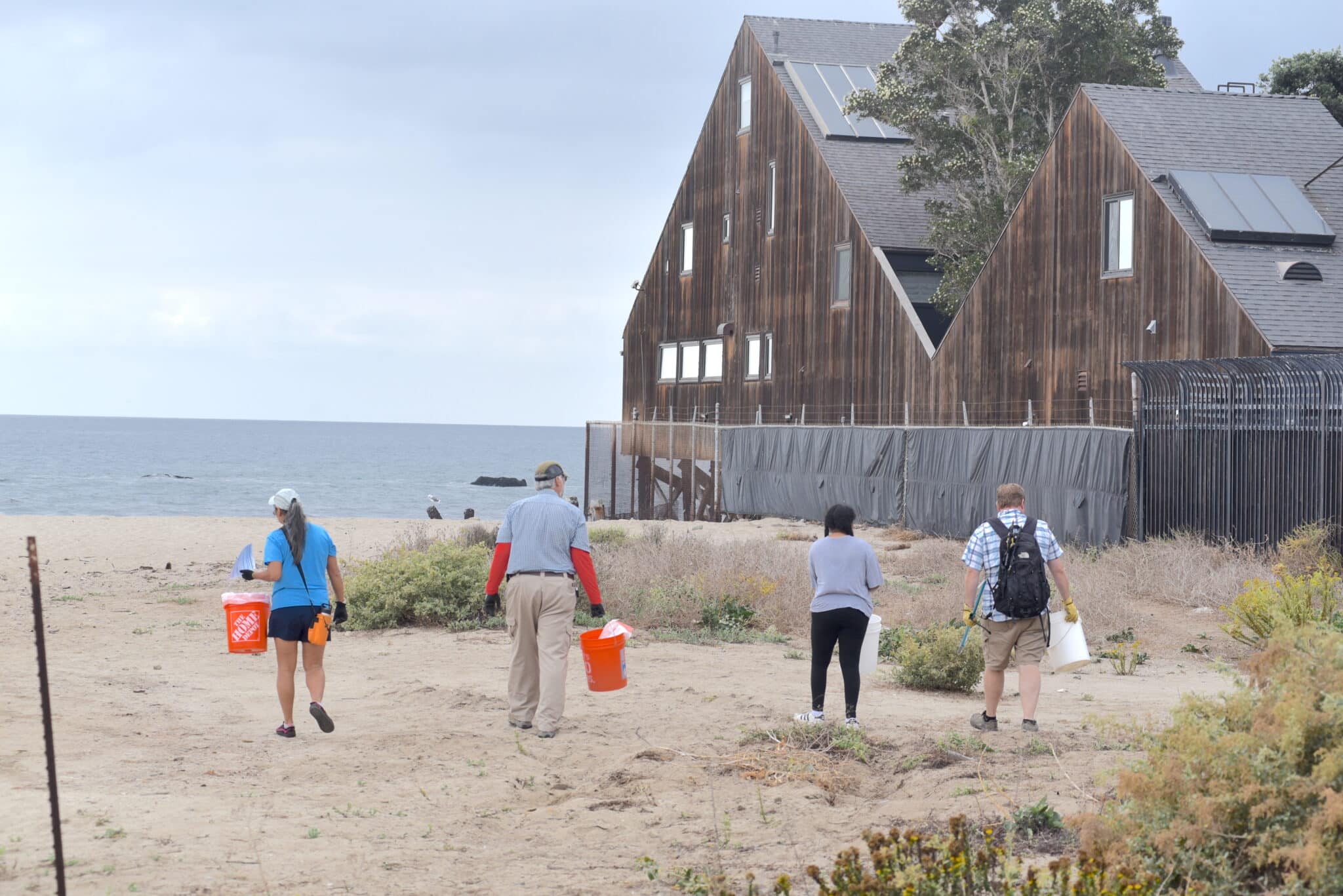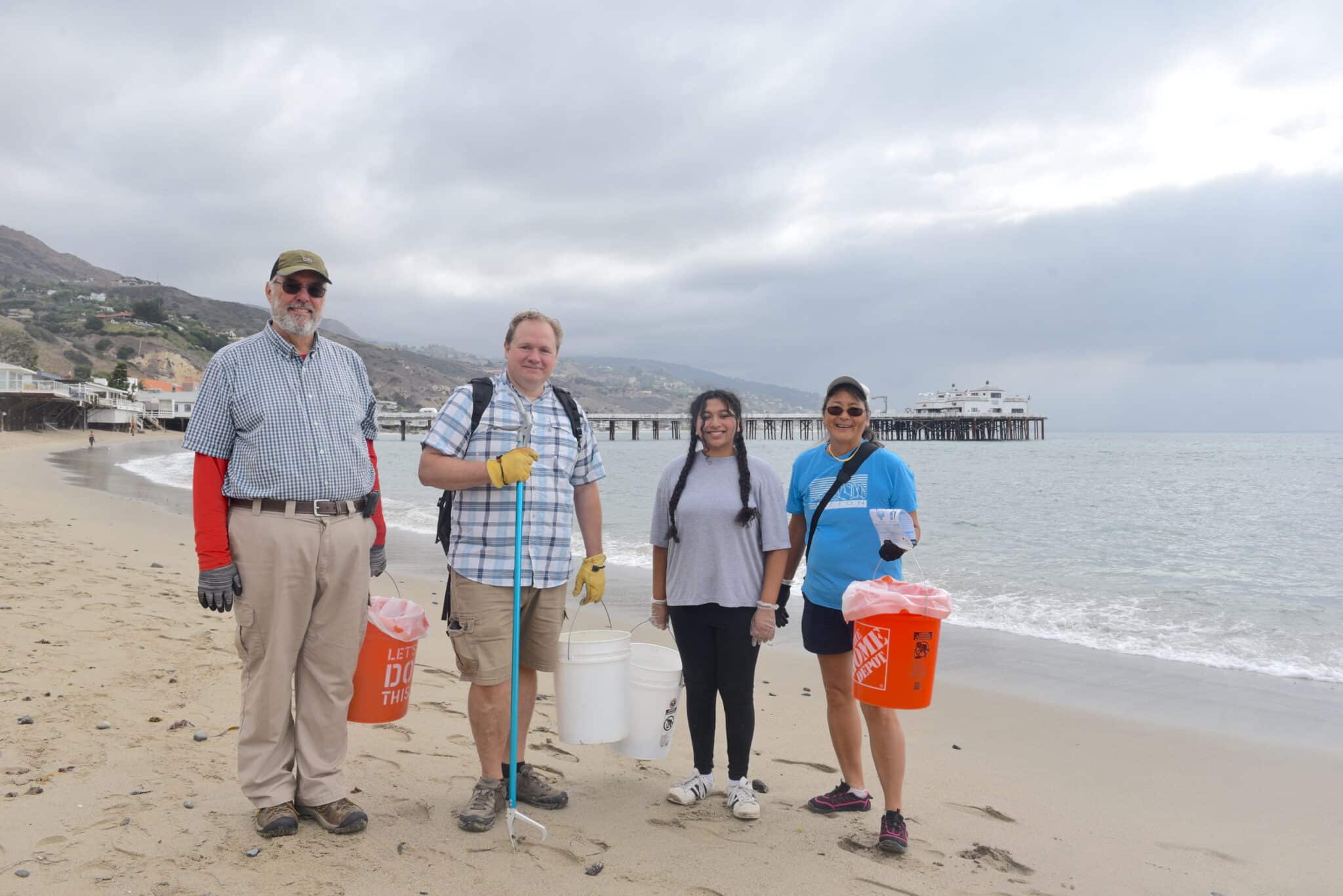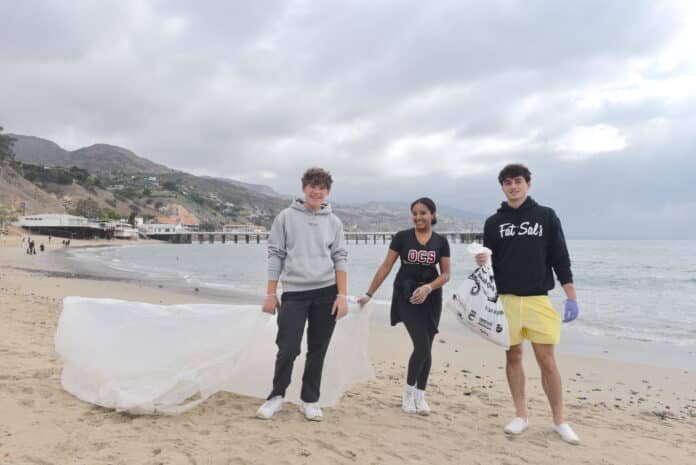
The California Coastal Commission held the 38th Annual California Coastal Cleanup Day on Saturday, Sept. 17. Organized by the Ocean Conservancy, the cleanup brings awareness to the marine litter problem and provides a community event for direct involvement.
In Malibu, 24 volunteers participated in the cleanup on Saturday morning and picked up 101.9 pounds of trash from Malibu Lagoon and Surfrider Beach. All cleanups that take place during September will count towards their statewide goals.
The California Coast reported 27,185 volunteers picked up 250,563 pounds of trash and recyclables for the 2022 Coastal Cleanup.
Wishtoyo Chumash Foundation Watershed Scientist Tevin Schmitt was welcoming the volunteers at Malibu Lagoon for the coastal cleanup and provided the participants with a trash bag and data form to collect their findings while cleaning the beach.
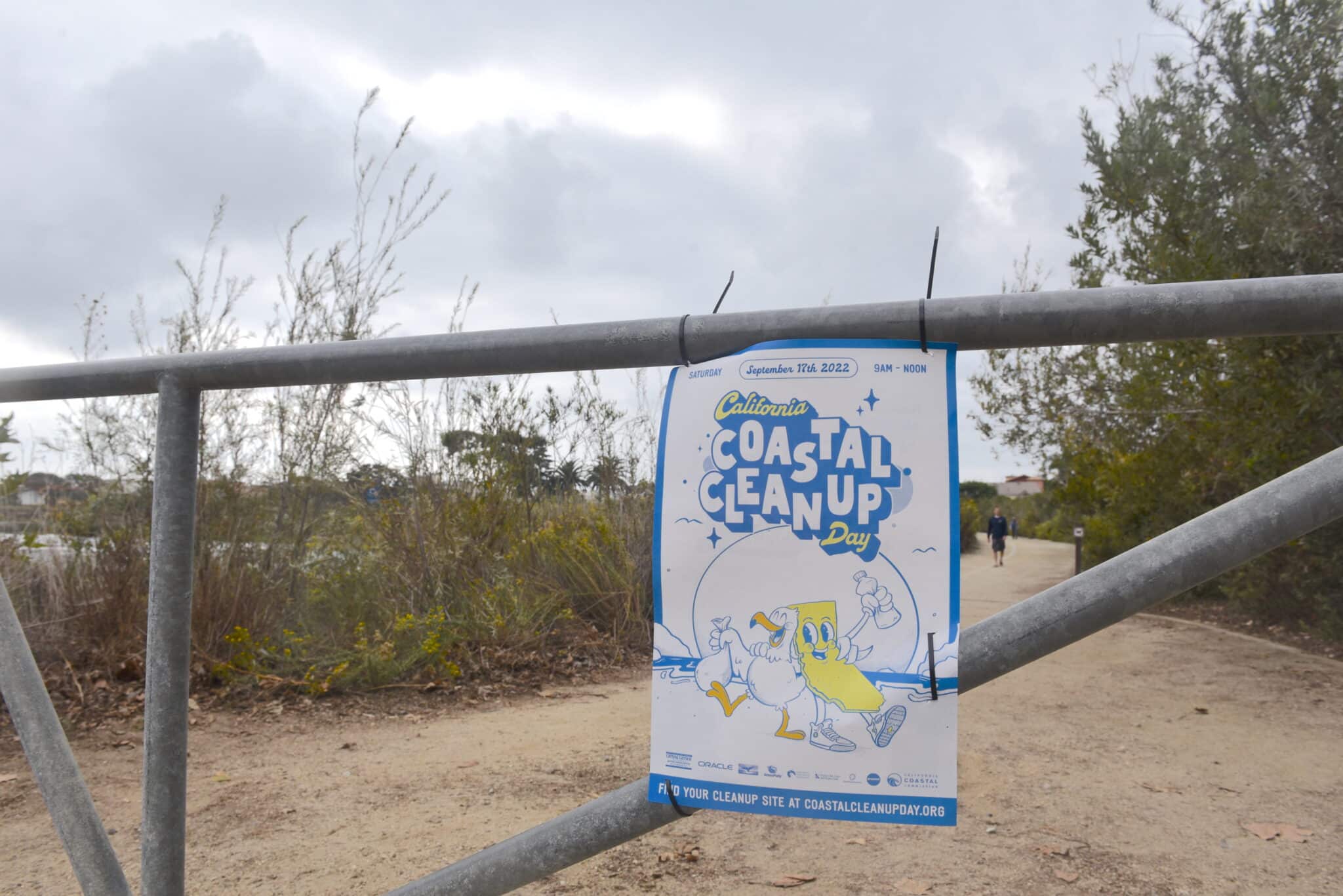
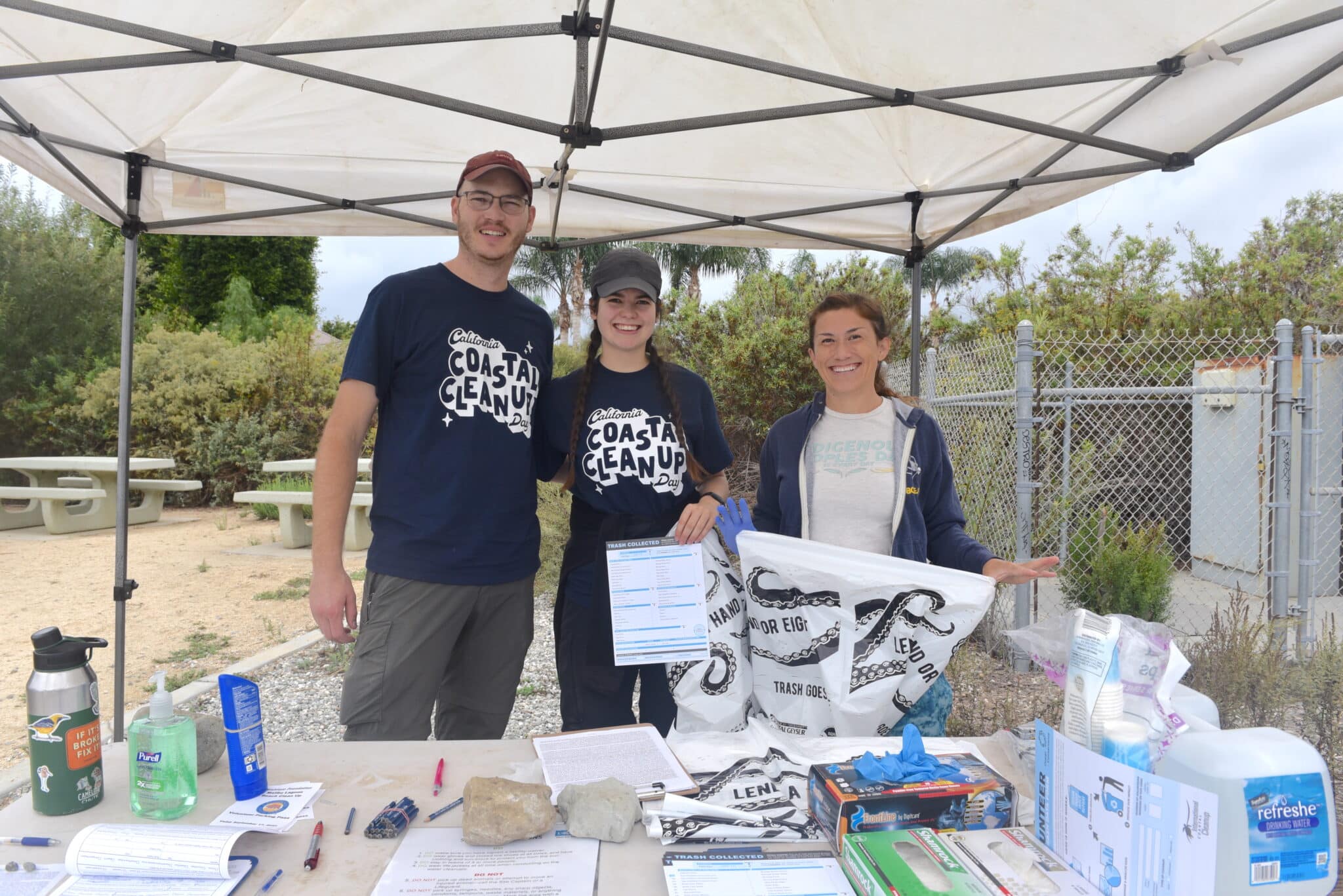
“This is a really good event as far as awareness about trash and pollution issues here in California and the world and it’s a really good opportunity for people to come out and take part in the community event and clean up their trash and learn a little bit about the issues,” Schmitt said. “This is also a citizens science project; we have people filling out data cards, and these data cards tell us the biggest trash issues on our beach, whether its cigarette butts, in the past it was plastic bags and straws and different things, and some of this data helps influence policy like the recent California plastic bag ban.”
According to the Coastal California website, only 20 percent of the items found in the ocean can be linked to ocean-based sources, like commercial fishing vessels, cargo ships (discharge of containers and garbage), or pleasure cruise ships. The remaining 80 percent from land-based sources, like litter from pedestrians, motorists, beach visitors, industrial discharges, which are often in the form of plastic pellets and powders and garbage management.
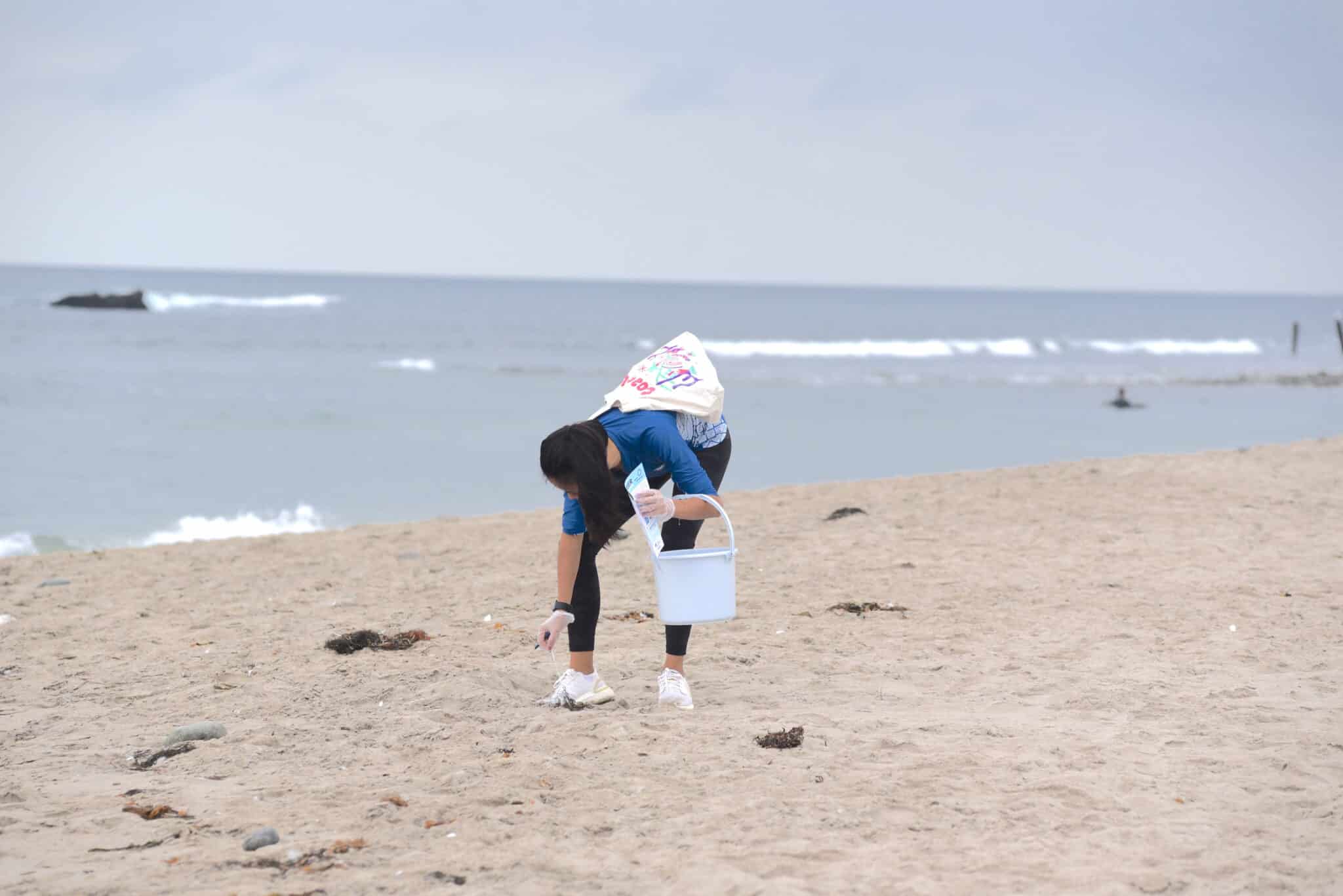
Schmitt said his group mostly works in Ventura County, but he was surprised to see this many volunteers. He also acknowledged the more frequent cleanups other organizations host.
“Groups like Surfrider Foundation do almost monthly cleanups in different areas that really need a lot of focus, I know Heal the Bay and Surfrider work out here,” Schmitt said.
While volunteering, Alex Diaz and Isabel Torres noticed how much algae there is at the Malibu Lagoon.
“I am here to help pick up plastic and different things to help with the environment around here one item at a time,” Diaz said. “It wasn’t as much as I expected, which is a beautiful thing. I’m grateful that we weren’t able to fill up our bags all the way.”
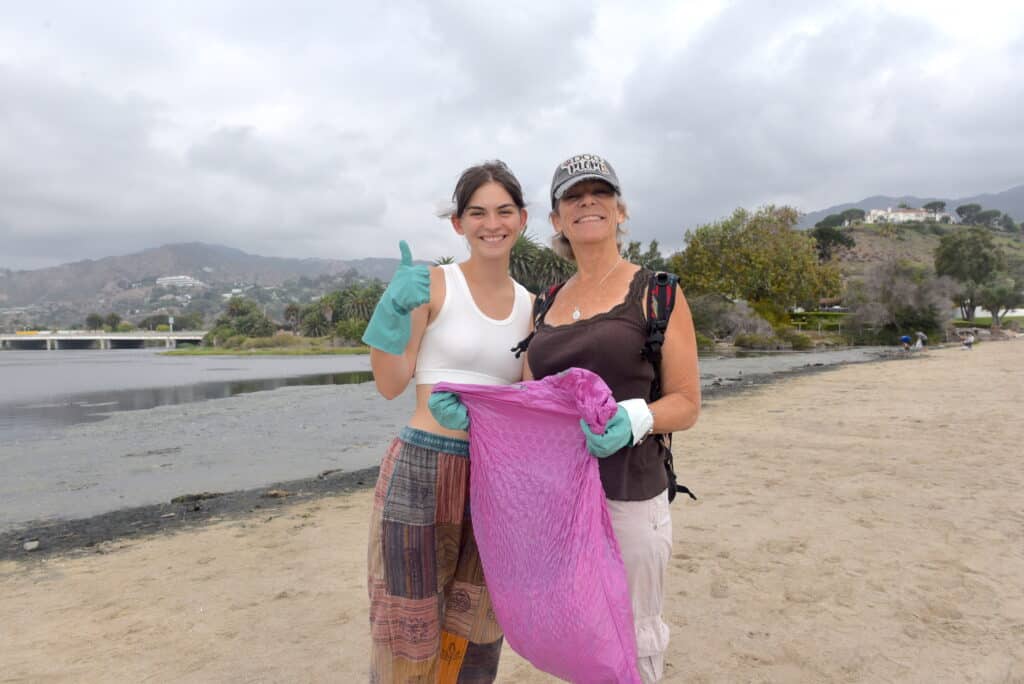
Diaz said the majority of things she found were cigarette butts, plastic cups, and a few surf straps. Diaz also recommends people use sustainable items rather than plastic.
“I think [people should be] using less plastic and more sustainable things for the earth, and if you chose to use plastic cups just pick it up,” she said.
Marine debris is a global pollution problem that impacts human health and safety, endangers wildlife and aquatic habitats. Trash from inland areas tends to flow downstream to the coast, so cleaning up neighborhood trash prevents marine debris. Marine debris is essentially any trash or litter that ends up in a marine environment or lakes.
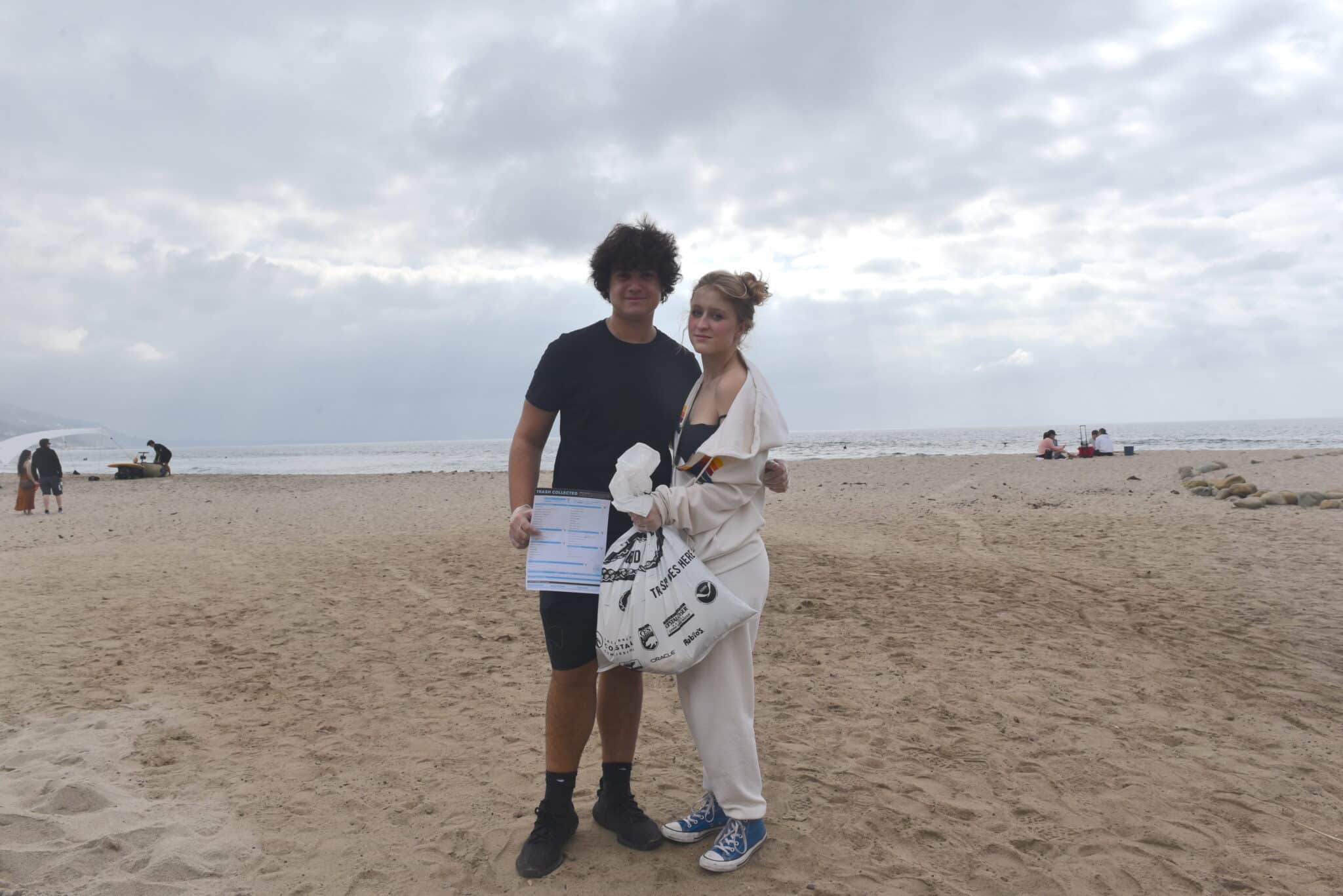
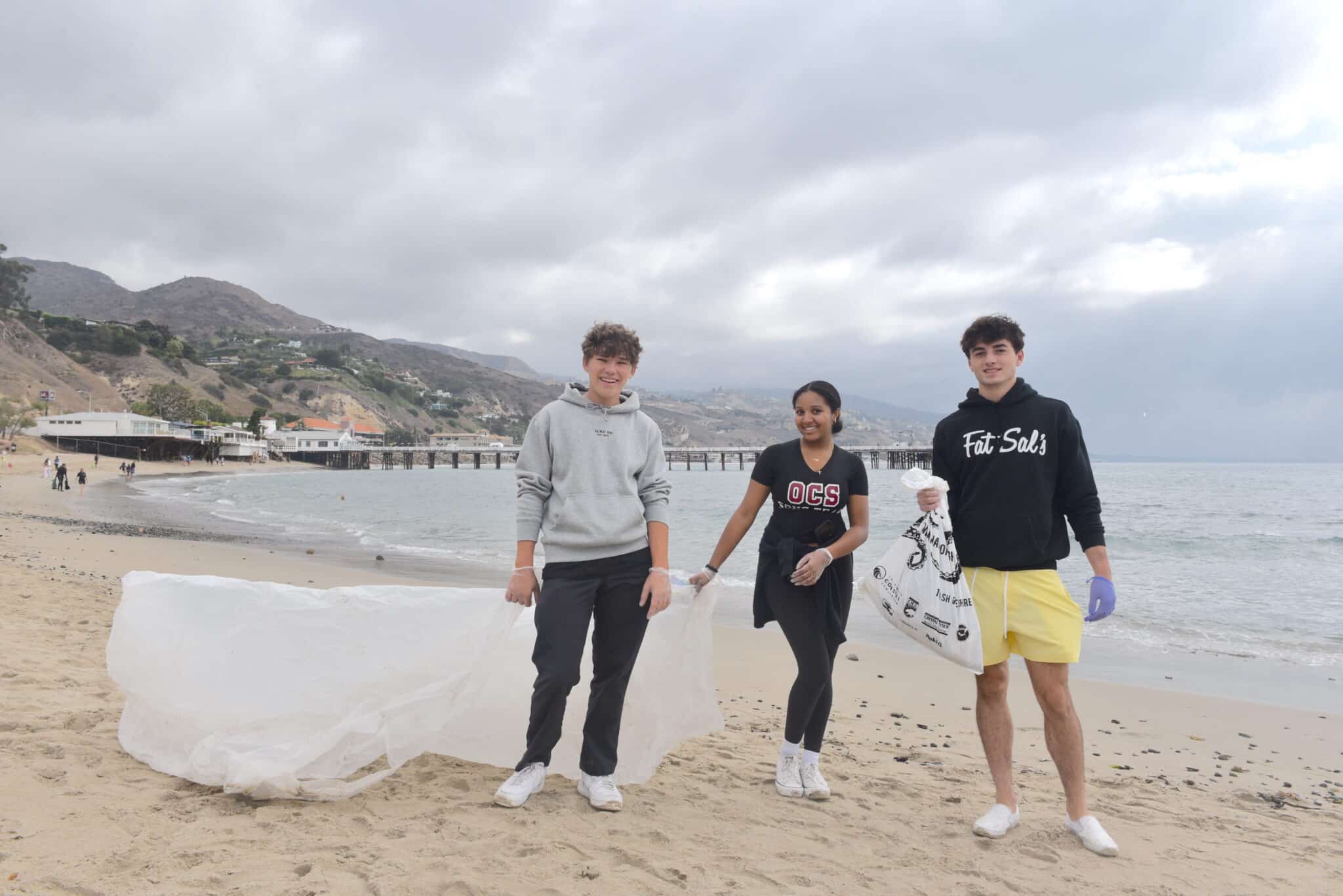
Volunteers Kellie Kessling and Lisa Shrewsbury found bottles, plastic, and glass while cleaning up Malibu Lagoon and Surfrider Beach on Saturday and were surprised to see a lot of cigarette butts on the beach.
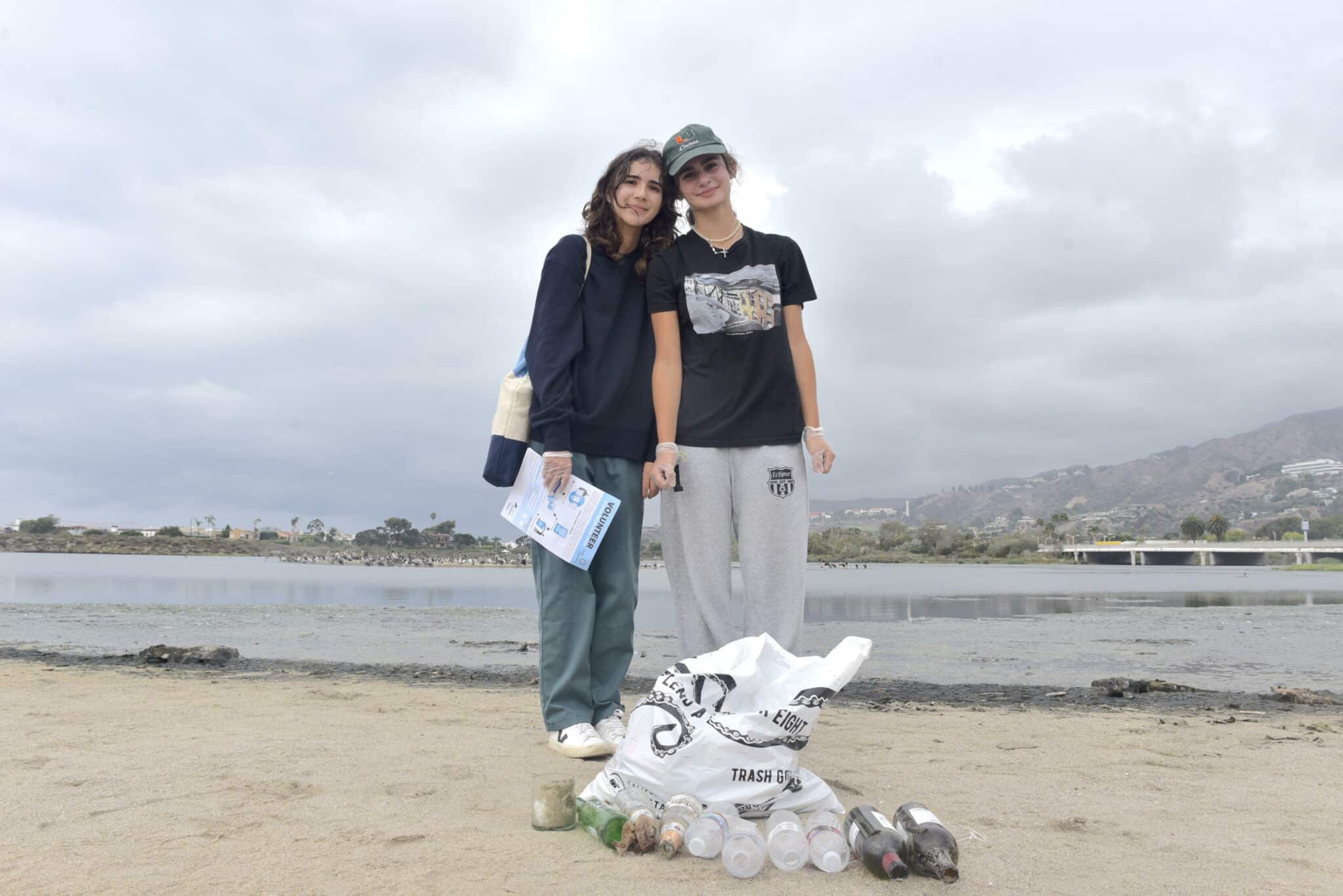
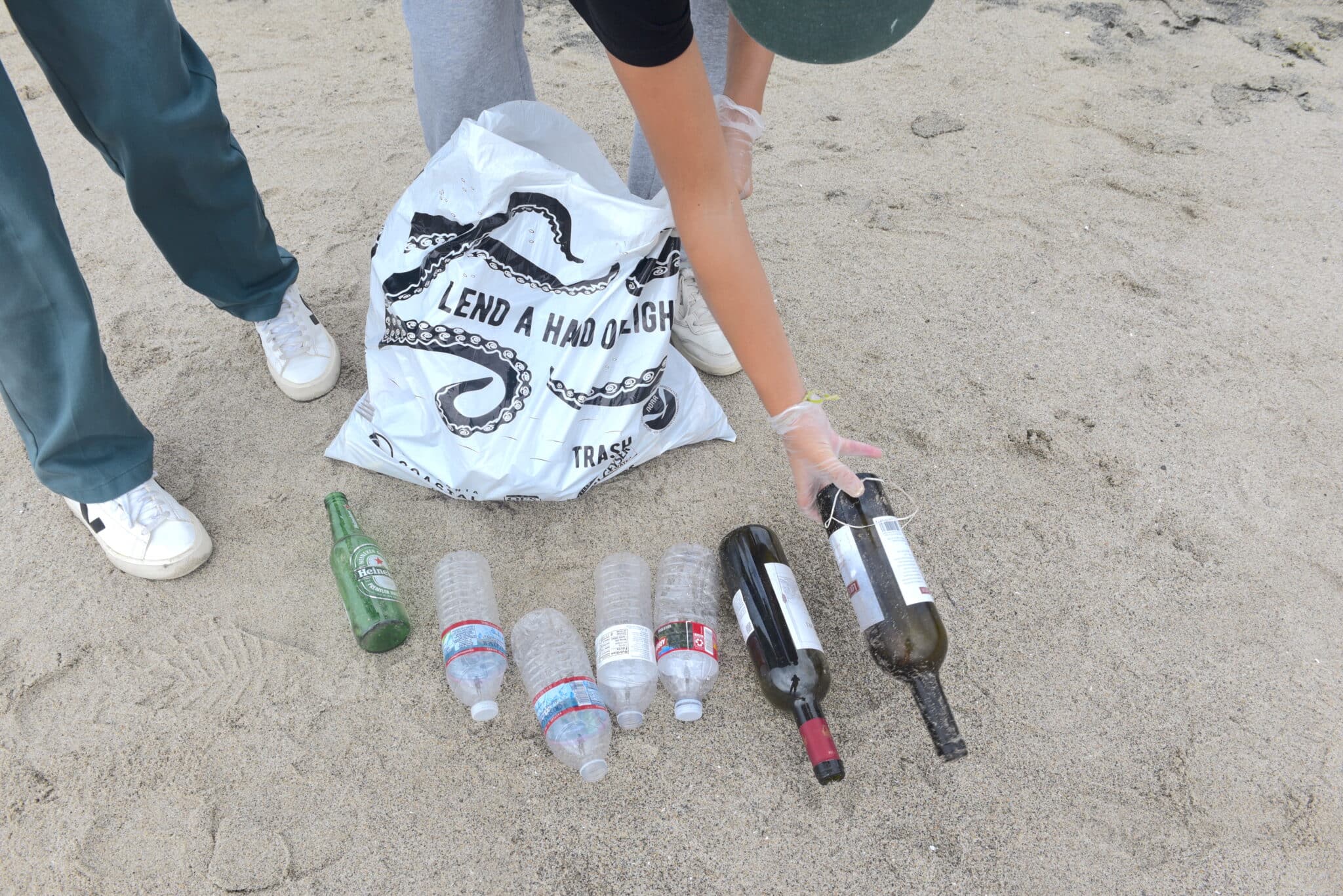
“Just because you’d expect more straws and plastic bottles,” Kessling said.
The California Coastal Commission also encourages others to pick up trash and litter and document it.
“Gather cleanup supplies from home, download the CleanSwell app to count your trash, and to have your trash counted and clean on your own time,” the website says. “Join the movement for an environment where people and ecosystems can survive and thrive. Volunteer alongside your families, friends, co-workers, scout troops, school groups, and service clubs.”
